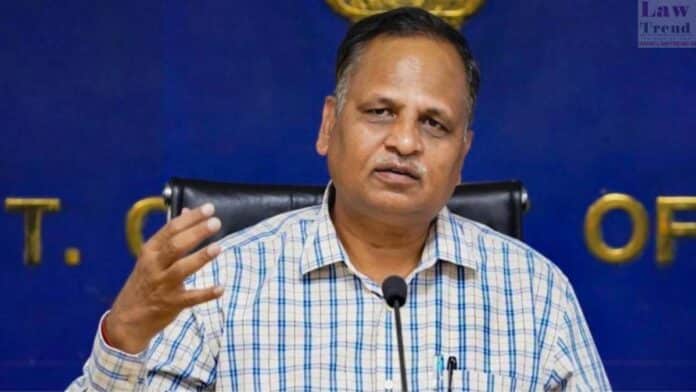The Supreme Court Monday said it will hear on May 26 the petition of former Delhi minister Satyendar Jain seeking bail in a money laundering case being probed by the Enforcement Directorate.
A bench of Justices Aniruddha Bose and Sanjay Karol agreed to list the matter for hearing on May 26, after senior advocate Abhishek Singhvi, appearing for Jain, sought urgent listing of the plea on health grounds.
On May 18, the top court had sought the response of the Enforcement Directorate (ED) on Jain’s plea.
It had issued notice to the ED and granted liberty to Jain to move before the vacation bench for relief.
Singhvi had then said the AAP leader has lost 35 kg and has been reduced to a skeleton. Jain is suffering from several ailments, he had submitted.
On April 6, the Delhi High Court had dismissed the bail plea of Jain in the money laundering case noting the witnesses’ claim that he was the conceptualiser, initiator and fund provider in the alleged crime.
The high court said the senior AAP leader was an influential person having the potential to tamper with evidence.
The ED had arrested Jain on May 30 last year on the charge of laundering money through four companies allegedly linked to him.
The agency had arrested Jain in the aftermath of a CBI FIR registered against him in 2017 under the Prevention of Corruption Act.
Also Read
He was granted regular bail by the trial court on September 6, 2019 in the case registered by the CBI.
In 2022, the trial court had taken cognisance of the prosecution complaint (ED version of charge sheet) filed by the federal probe agency against Jain, his wife and eight others, including the four firms, in connection with the money laundering case.
On November 17 last year, the trial court had dismissed the bail pleas of Jain and two others in the case.
It had said Jain was prima facie involved in concealing the proceeds of crime.
Besides him, the trial court had also denied bail to Vaibhav Jain and Ankush Jain, saying they “knowingly” assisted Satyendar Jain in concealing the proceeds of crime and were “prima facie guilty” of money laundering.




